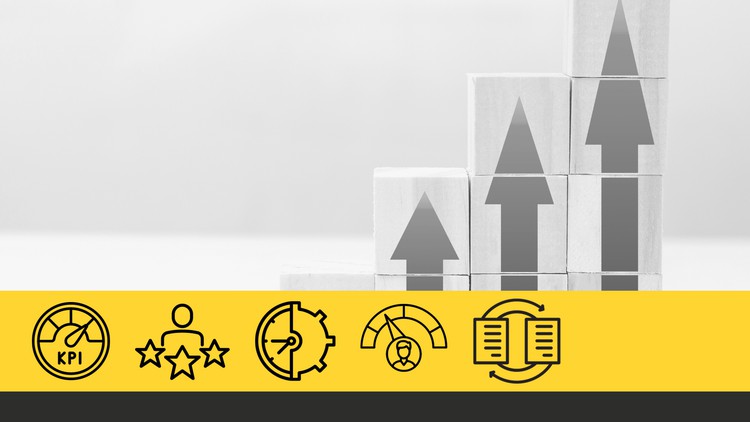Performance Management Process & Implementation with Example

Why take this course?
Performance management is a critical HR function that ensures employees understand expectations, are given the support and tools to achieve, and are evaluated on their progress. It's a continuous process that includes setting clear goals, providing regular feedback, conducting performance appraisals, and managing employee development. Here's a comprehensive guide on how to approach performance management effectively:
Performance Management Steps:
-
Develop Clear and Measurable Goals:
- Define specific, measurable, achievable, relevant, and time-bound (SMART) goals.
- Align individual objectives with organizational goals.
-
Implement Continuous Feedback:
- Foster a culture of open communication where feedback is given regularly.
- Use various channels for feedback, such as informal discussions, formal meetings, or peer reviews.
-
Conduct Effective Performance Evaluations:
- Use a variety of methods to assess performance accurately.
- Set performance ratings and provide constructive feedback that focuses on both strengths and areas for improvement.
-
Design and Manage Performance Improvement Plans:
- For underperforming employees, create tailored plans to address specific issues.
- Set clear expectations and timelines for improvements.
-
Create Development Plans:
- Identify opportunities for skill enhancement and career progression.
- Encourage employees to take charge of their professional development.
-
Implement Performance Recognition and Rewards:
- Recognize and reward achievements to motivate employees.
- Link rewards to performance to reinforce the value of exceptional work.
-
Leverage Technology and Tools:
- Use software solutions to streamline the performance management process.
- Ensure data privacy, security, and compliance with regulations.
Types and Methods of Appraisal:
-
Personal Management Cycle:
- Understand your own personal management cycle and how it influences your appraisal process.
- Adapt your approach to accommodate different employee needs.
-
Performance Appraisal Process:
- Prepare for the appraisal meeting by collecting necessary data and examples of performance.
- Conduct the meeting with professionalism, ensuring it is constructive and focused on improvement.
-
Avoid Discriminatory Behavior:
- Be mindful of biases that could affect your judgment.
- Strive for fair assessments.
-
Linkages to Smart Goal:
- Write SMART goals to guide employees' performance targets.
-
Action and Development Planning:
- Develop action plans for performance improvements.
-
Final Appraisal:
- Analyze the performance data collected over the review period.
-
Feedback Session to Coaching Feedback:
- Engage in coaching feedback sessions to provide continuous feedback and support.
-
Templates and Downloads:
- Utilize PMS appraisal form templates for your performance management process.
Performance Targets:
- Individual Performance Targets:
- Set individual targets based on performance data.
- Link these targets to organizational goals.
- Performance Planning:
- Plan the development of employees, focusing on skill enhancement and career progression.
- Development Planning:
- Identify competency gaps and plan for their development.
- Quarterly Appraisal:
- Conduct quarterly appraisals to monitor progress.
- Action Planning:
- Develop specific action plans for addressing performance issues.
Tools for Performance Management:
-
PMS Appraisal Form:
- Use the form as a guide during the appraisal process.
-
Professional Competencies and Self-Assessment:
- Encourage employees to self-assess their competencies.
-
Sample KRA:
- Use sample key result areas (KRAs) to define expectations for performance.
-
Sample PMS Form Templates:
- Leverage form templates provided by the organization to streamline the process.
-
PMS Process Description and Workflow:
- Understand and document the performance management workflow.
-
PMS Terminologies:
- Familiarize yourself with common terminologies used in performance management.
-
PMS Case Study in Different Organizations:
- Analyze case studies to understand best practices in different organizations.
By following these steps and using the appropriate tools, organizations can effectively manage employee performance, leading to improved organizational outcomes.
Loading charts...